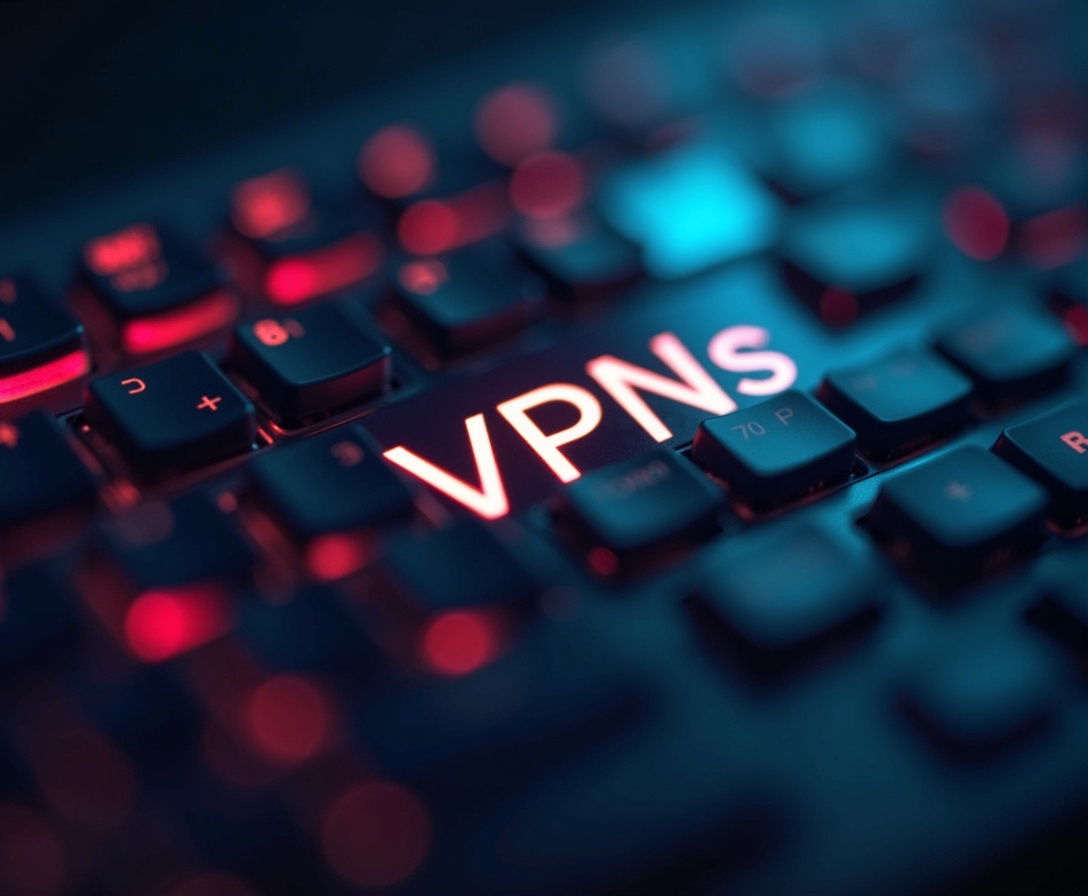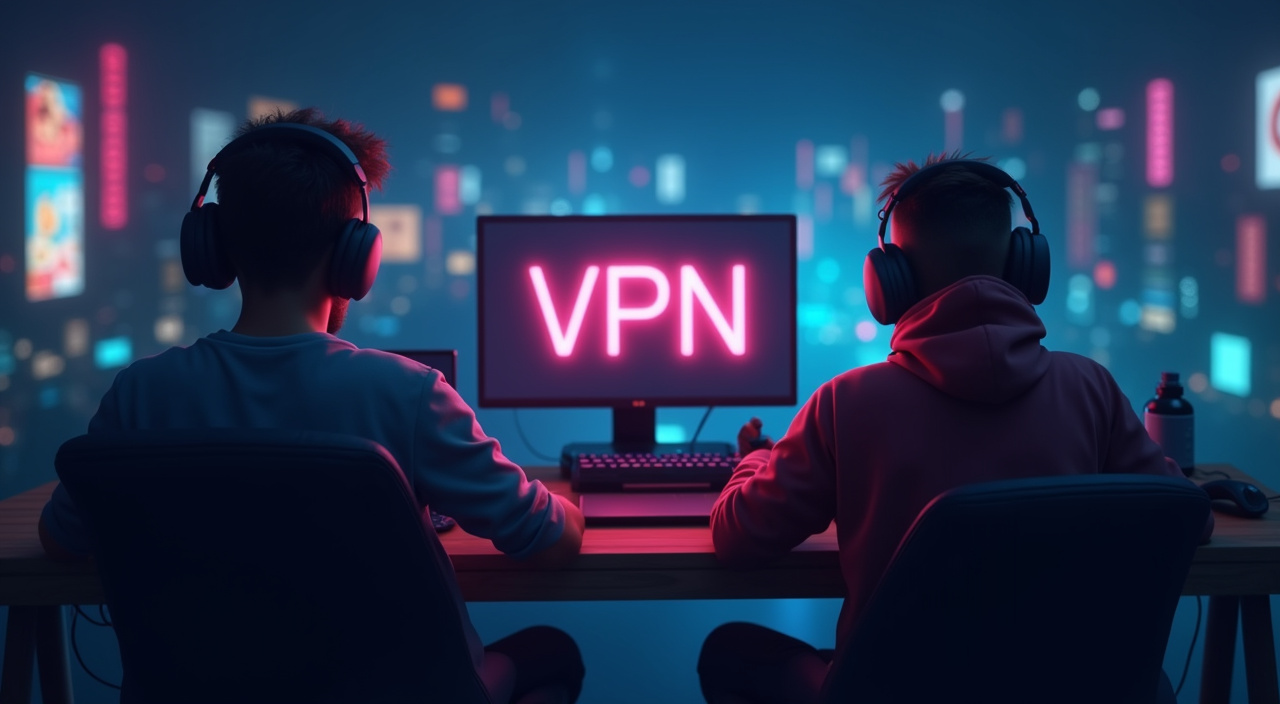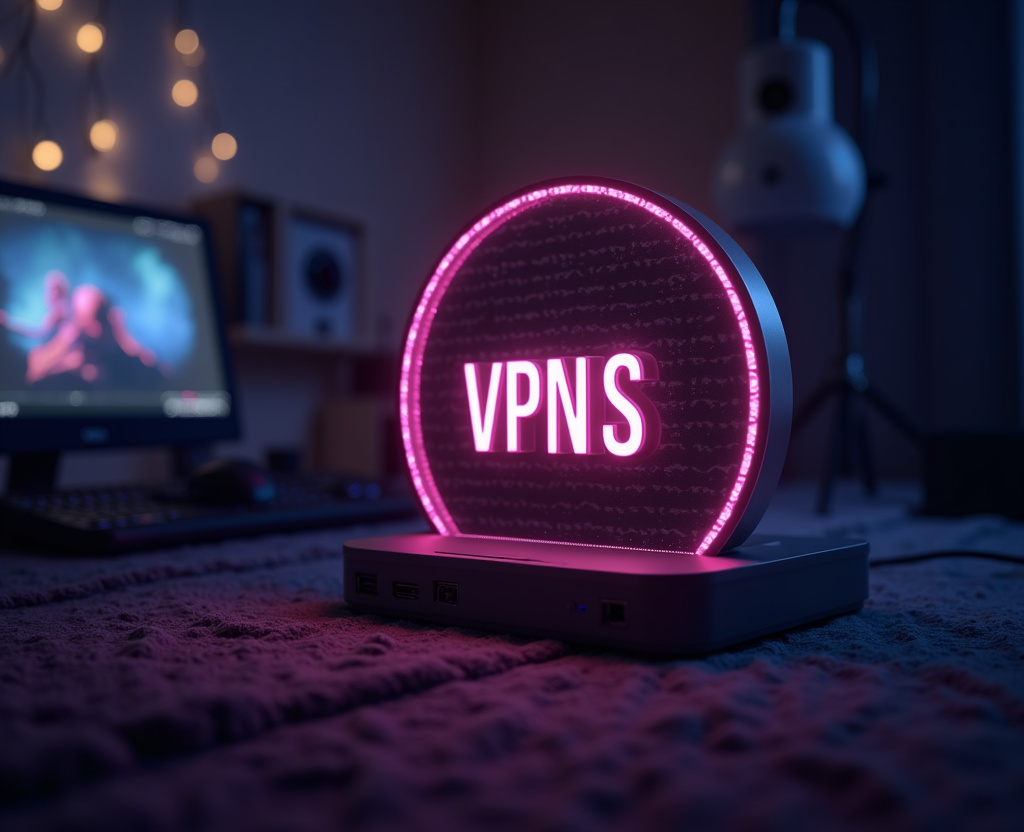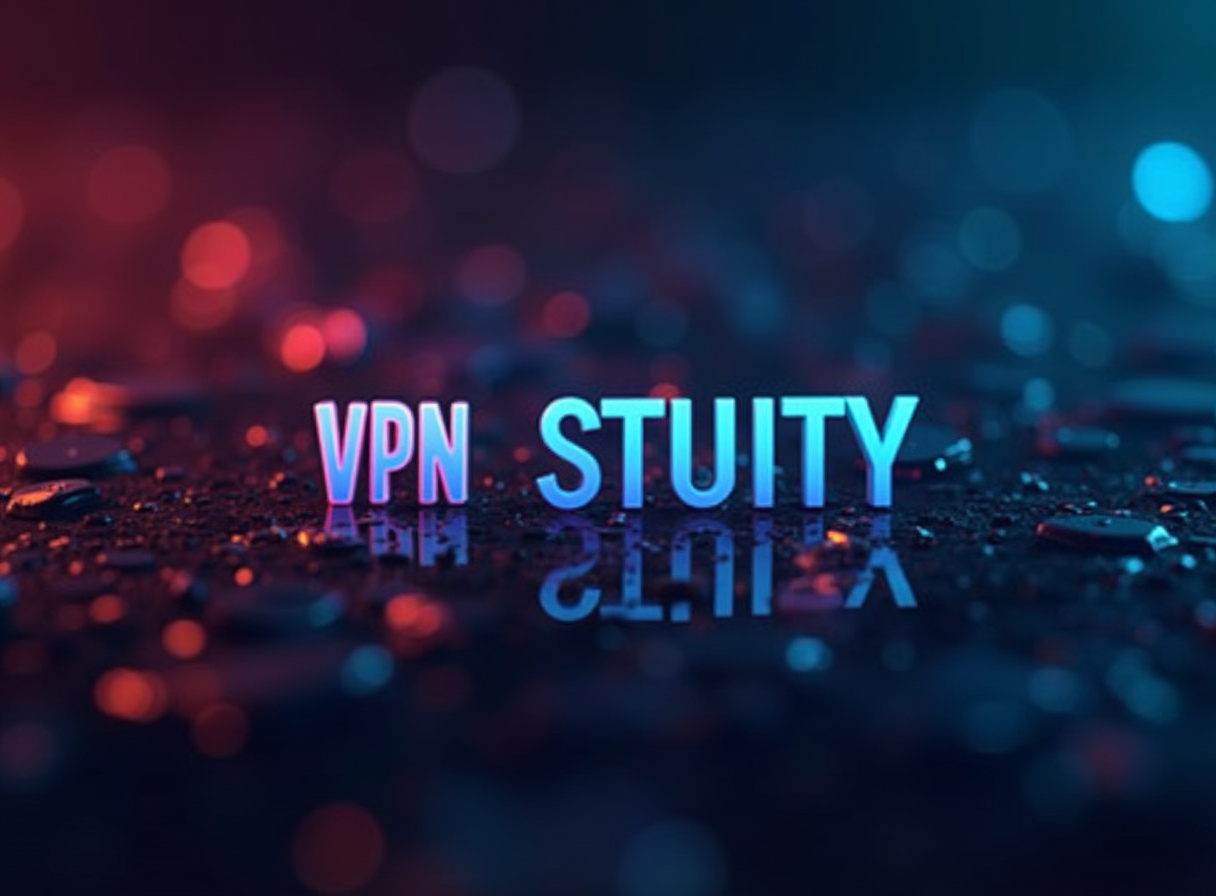VPNs for Cloud Gaming: Enhancing Player Security

Table of Contents
Securing Your Educational Gaming Experience with VPNs
Cloud gaming has rapidly transformed the landscape of video games, offering unprecedented accessibility and convenience by streaming games from remote servers directly to our devices. This innovation eliminates the need for expensive gaming hardware, allowing players to enjoy high-fidelity gaming experiences on a variety of devices, from smartphones and tablets to budget laptops. However, this technological leap forward introduces a new set of security vulnerabilities and performance challenges that demand careful consideration.
This article delves into the critical role of Virtual Private Networks (VPNs) in enhancing player security, lag protection, and transaction safety within the cloud gaming ecosystem. We'll explore the multifaceted benefits of using a 'cloud gaming VPN' and offer practical insights for optimizing your gaming experience while simultaneously safeguarding your digital well-being. Imagine being able to access your favorite AAA titles on the go, without being tethered to a high-end gaming PC or console.
Cloud gaming makes this a reality, but it also means entrusting your data to a third-party service and relying on a stable internet connection. This reliance introduces potential security risks that must be addressed. When you engage in cloud gaming, your gaming data, including login credentials, financial information, and gameplay activity, is transmitted over the internet.
Without proper security measures, this data can be vulnerable to interception by malicious actors. A VPN acts as a crucial safeguard, creating a secure and encrypted tunnel for your data, effectively masking your IP address and making it significantly more difficult for cybercriminals to monitor or intercept your online activity. The concept of 'player security' is paramount in the realm of online gaming, including cloud gaming.
Gamers are often targeted by hackers due to the perceived value of their accounts, which may hold in-game items, currency, and personal information. Data breaches and account hacks are increasingly common, and the consequences can be devastating, ranging from the loss of valuable assets to identity theft. A VPN adds a vital layer of security, significantly reducing the risk of falling victim to these threats.
By encrypting your data and masking your IP address, a VPN makes it substantially harder for hackers to target your account or intercept your personal information. Furthermore, VPNs can provide 'lag protection', a key concern for cloud gamers. While it may seem counterintuitive, considering that VPNs add an extra step to the data transmission process, they can sometimes improve connection stability and reduce lag.
This is often the case when your Internet Service Provider (ISP) is throttling your bandwidth based on your gaming activity. ISPs frequently employ traffic shaping techniques to manage network congestion, and gaming, due to its bandwidth-intensive nature, is often a target. By encrypting your traffic, a VPN prevents your ISP from easily identifying your gaming activity, thus preventing throttling and ensuring a smoother, more responsive gaming experience.
Nobody wants to experience frustrating stutters or delays during pivotal gameplay moments. The promise of a smoother, more reliable gaming experience is a compelling reason for many to embrace a VPN.
Mitigating Threats and Enhancing Security for Game Developers with VPNs
Beyond enhanced security and potential performance improvements, a VPN can also enable you to bypass geographic restrictions and access game content that may not be available in your specific region. Certain games or features may be exclusive to certain countries, often due to licensing agreements or regional regulations imposed by game publishers or cloud gaming platforms. A VPN allows you to virtually relocate your IP address, effectively spoofing your location and unlocking access to region-locked content.
This can be particularly appealing for gamers who want to experience games or features that are otherwise inaccessible in their region. However, it's essential to exercise caution and be aware that using a VPN to circumvent geographic restrictions may violate the terms of service of some cloud gaming platforms. Before attempting to bypass restrictions, it’s crucial to carefully review the platform's policies to avoid potential account suspension or other penalties.
The benefits of a VPN extend to ensuring 'transaction safety' during online gaming-related purchases. Many cloud gaming platforms involve in-app purchases, subscriptions, or transactions related to virtual items. These transactions often require you to enter your credit card details or other sensitive financial information.
A VPN encrypts this data, making it significantly more difficult for cybercriminals to intercept and steal your financial information. This is especially crucial when using public Wi-Fi networks, which are notoriously insecure and vulnerable to interception attacks. Public Wi-Fi networks are often unsecured or use weak encryption protocols, making them prime targets for hackers who seek to steal personal information from unsuspecting users.
When connected to public Wi-Fi, your data is transmitted over an open network, making it vulnerable to eavesdropping. A VPN creates a secure, encrypted connection, protecting your financial data and preventing unauthorized access. This is particularly important when making in-game purchases or managing your cloud gaming subscriptions while on the go.
Choosing the right 'VPN for gaming' is paramount to reaping the benefits discussed earlier. Not all VPNs are created equal, and some are significantly better suited for gaming than others. Several factors must be carefully considered when selecting a VPN for cloud gaming.
One of the most critical factors is the VPN's server network. A VPN with a large and geographically diverse server network allows you to connect to servers located closer to the cloud gaming servers. This proximity minimizes latency, often referred to as ping, which is the delay in data transmission between your device and the gaming server, ultimately leading to improved performance.
Look for a VPN that has servers in the regions where the cloud gaming platform's servers are located. The closer you are to the game server, the lower your ping will be, and the smoother your gaming experience will be.
Third section subtitle
Another crucial consideration is the VPN's speed and reliability. Gaming demands a stable and low-latency connection, making it essential to choose a VPN that offers fast speeds and minimal packet loss. Packet loss refers to the percentage of data packets that fail to reach their destination, which can result in stuttering, lag, and disconnections during gameplay.
Some VPNs may introduce significant overhead, slowing down your connection and negatively impacting your gaming experience. It's advisable to read reviews and conduct speed tests to evaluate the VPN's performance before committing to a subscription. Speed tests typically involve measuring the upload and download speeds with and without the VPN enabled to determine the performance impact.
The VPN's encryption protocol is also an essential factor to consider. The encryption protocol is the set of rules and algorithms that govern how data is encrypted and decrypted. Different protocols offer varying levels of security and performance.
The most common and secure encryption protocols include OpenVPN, IKEv2, and WireGuard. OpenVPN is a widely used and highly regarded open-source protocol known for its robust security and broad compatibility. It is considered a reliable choice for protecting your data and preventing eavesdropping.
IKEv2 is another popular protocol, particularly known for its speed and stability, especially on mobile devices. It's often preferred for gaming on smartphones and tablets due to its ability to maintain a stable connection even when switching between Wi-Fi and cellular networks. WireGuard is a relatively new protocol that is rapidly gaining popularity due to its speed and efficiency.
It utilizes a more streamlined codebase, making it significantly faster than older protocols like OpenVPN. However, it's still a relatively new protocol, and its long-term security track record is still being evaluated. Consider the VPN's logging policy as well.
A reputable VPN should have a strict no-logs policy, meaning that it does not collect or store any information about your online activity. This includes your browsing history, IP address, connection timestamps, and any data transmitted through the VPN. A no-logs policy is crucial for maintaining your privacy and confidentiality.
Some VPNs may claim to have a no-logs policy but may still collect some metadata, such as connection times and bandwidth usage. It's important to carefully review the VPN's privacy policy before subscribing to ensure that it truly adheres to a no-logs policy and that your data is not being collected or stored in any way.
VPNs for Services: A Comprehensive Approach to Security and Privacy
A kill switch is another essential feature for a gaming VPN. A kill switch automatically disconnects your internet connection if the VPN connection drops, preventing your data from being exposed. This is particularly important if you are engaged in sensitive online activities, such as online banking or gaming, where your IP address and data could be vulnerable if the VPN connection suddenly fails.
The kill switch acts as a safety net, ensuring that your data remains protected even if the VPN connection is interrupted. Price is also a consideration, although it shouldn't be the sole deciding factor. While free VPNs may seem appealing, they often come with limitations, such as data caps, slow speeds, and limited server locations.
They may also contain malware or track your online activity. Free VPN services often rely on advertising or data harvesting to generate revenue, which can compromise your privacy and security. They may also inject ads into your browsing sessions or sell your browsing data to third-party advertisers.
Furthermore, free VPNs typically offer weaker encryption and lower bandwidth, which can significantly impact your gaming performance. Paid VPNs typically offer better performance, security, and privacy. They provide faster speeds, unlimited bandwidth, a wider range of server locations, and stronger encryption.
They also typically adhere to stricter privacy policies and do not track your online activity. While paid VPNs require a subscription fee, the benefits they offer in terms of security, performance, and privacy are well worth the investment for serious gamers.
When assessing VPNs, it is important to delve into the specifics of their security features. Beyond the basic encryption protocols, consider advanced features such as DNS leak protection, which prevents your DNS requests from being exposed to your ISP, even when using a VPN. DNS leaks can reveal your browsing activity, even if your IP address is masked.
Look for a VPN that offers built-in DNS leak protection to ensure that your DNS requests are routed through the VPN server. Also, investigate the VPN's stance on WebRTC leaks. WebRTC is a technology that enables real-time communication in web browsers, but it can also reveal your true IP address, even when using a VPN.
Some VPNs offer WebRTC leak protection to prevent this from happening. Split tunneling is another feature to consider. Split tunneling allows you to choose which traffic is routed through the VPN and which traffic is routed through your regular internet connection.
This can be useful for gaming, as you can route your game traffic through the VPN while routing other traffic, such as browsing or streaming, through your regular connection. This can help to improve your overall internet speed and reduce latency for gaming. The user interface (UI) and ease of use are also important considerations, especially for novice users.
A VPN with a clunky or confusing interface can be frustrating to use, especially when you need to quickly connect to a server or adjust settings. Look for a VPN with a user-friendly interface that is easy to navigate and understand. Customer support is another aspect that should not be overlooked.
If you encounter any issues or have questions about the VPN, it's important to have access to reliable customer support. Look for a VPN that offers 24/7 customer support via live chat, email, or phone. Testimonials and reviews from other users can provide valuable insights into the quality of the VPN's customer support.
Consider the VPN's compatibility with different devices and operating systems. If you plan to use the VPN on multiple devices, such as your computer, smartphone, and tablet, make sure that it is compatible with all of your devices. Most VPNs offer apps for Windows, macOS, Android, and iOS.
Some VPNs may also offer apps for Linux and other operating systems. It’s advantageous to research whether the VPN service has undergone independent security audits. Independent audits by reputable cybersecurity firms can provide assurance that the VPN's security claims are legitimate.
These audits typically involve a thorough review of the VPN's codebase, infrastructure, and security practices.
Check if the VPN provider accepts cryptocurrency payments. Paying with cryptocurrency can provide an additional layer of privacy, as it does not require you to provide your credit card details or other personal information. Look for a VPN that accepts a variety of cryptocurrencies, such as Bitcoin, Ethereum, and Litecoin.
Another key aspect to examine is the number of simultaneous connections allowed. This dictates how many devices can be connected to the VPN at the same time using a single account. If you have multiple devices or family members who want to use the VPN simultaneously, you'll need to ensure that the VPN allows for a sufficient number of connections.
Some VPNs offer unlimited simultaneous connections, while others limit the number to a certain number, such as five or ten. In cloud gaming scenarios, 'VPN for gaming' can influence matchmaking. Some games consider ping and geographic location when pairing players.
Using a VPN to connect to a server in a different region could affect the players you are matched with. This might be desirable if you want to play with friends in another country or if you are looking for less competitive matches. The ethical considerations are also important.
While VPNs offer numerous benefits, it's essential to use them responsibly and ethically. Avoid using a VPN for illegal activities, such as downloading copyrighted material or engaging in cybercrime. Using a VPN for illegal purposes can have serious consequences, including legal penalties and account suspension.
Always respect the terms of service of the cloud gaming platform and the VPN provider. The cloud gaming industry is constantly evolving, and the role of VPNs is likely to become even more important in the future. As cloud gaming becomes more widespread, the need for enhanced security and privacy will only increase.
VPNs will continue to play a vital role in protecting gamers from cyber threats and ensuring a safe and enjoyable gaming experience. They'll adapt to new threats and technologies while providing a stable and convenient internet conection even when playing your favourite title.
In conclusion, VPNs offer a comprehensive suite of benefits for cloud gamers, addressing critical concerns related to player security, lag protection, and transaction safety. By encrypting your internet traffic and masking your IP address, a VPN significantly enhances your online security, protecting you from a wide range of cyber threats, including account hacks, data breaches, and identity theft. It also helps to prevent ISP throttling, ensuring a smoother and more responsive gaming experience.
Furthermore, VPNs enable you to bypass geographic restrictions and access game content that may not be available in your region, expanding your gaming horizons. When making online gaming-related purchases, a VPN provides an extra layer of security, protecting your financial information from interception by hackers. Choosing the right VPN for cloud gaming requires careful consideration of several factors, including server network, speed and reliability, encryption protocol, logging policy, kill switch, price, and customer support.
It's essential to select a VPN that offers a large and geographically diverse server network, fast speeds, strong encryption, a strict no-logs policy, and a reliable kill switch. While free VPNs may seem appealing, they often come with limitations and potential security risks, making paid VPNs the preferred choice for serious gamers. As the cloud gaming industry continues to evolve, VPNs will play an increasingly vital role in safeguarding players' security, enhancing their gaming experience, and providing them with the freedom to access content from anywhere in the world.
The benefits of using a ‘cloud gaming VPN’ extend to protecting your personal data from being sold to third parties as well. Some companies track your location history to sell this data to advertisers. The safest VPN protocols like OpenVPN will keep your data secure.
However, VPNs can also provide benefits outside of entertainment. Using 'VPN for gaming’ practices in business can safeguard company data. Many companies employ remote workers who need to access company tools from home.
Using these same VPN concepts protects company data from hackers trying to steal data. ‘Transaction safety’ also has implications in business as well. When employees are ordering equipment for work (like headsets or ergonomic keyboards) they want to protect that data from being stolen too.
All of these ideas make using a VPN and related security features useful in multiple areas.
Stay Updated
Get the latest VPN news, tips, and exclusive deals to your inbox.




